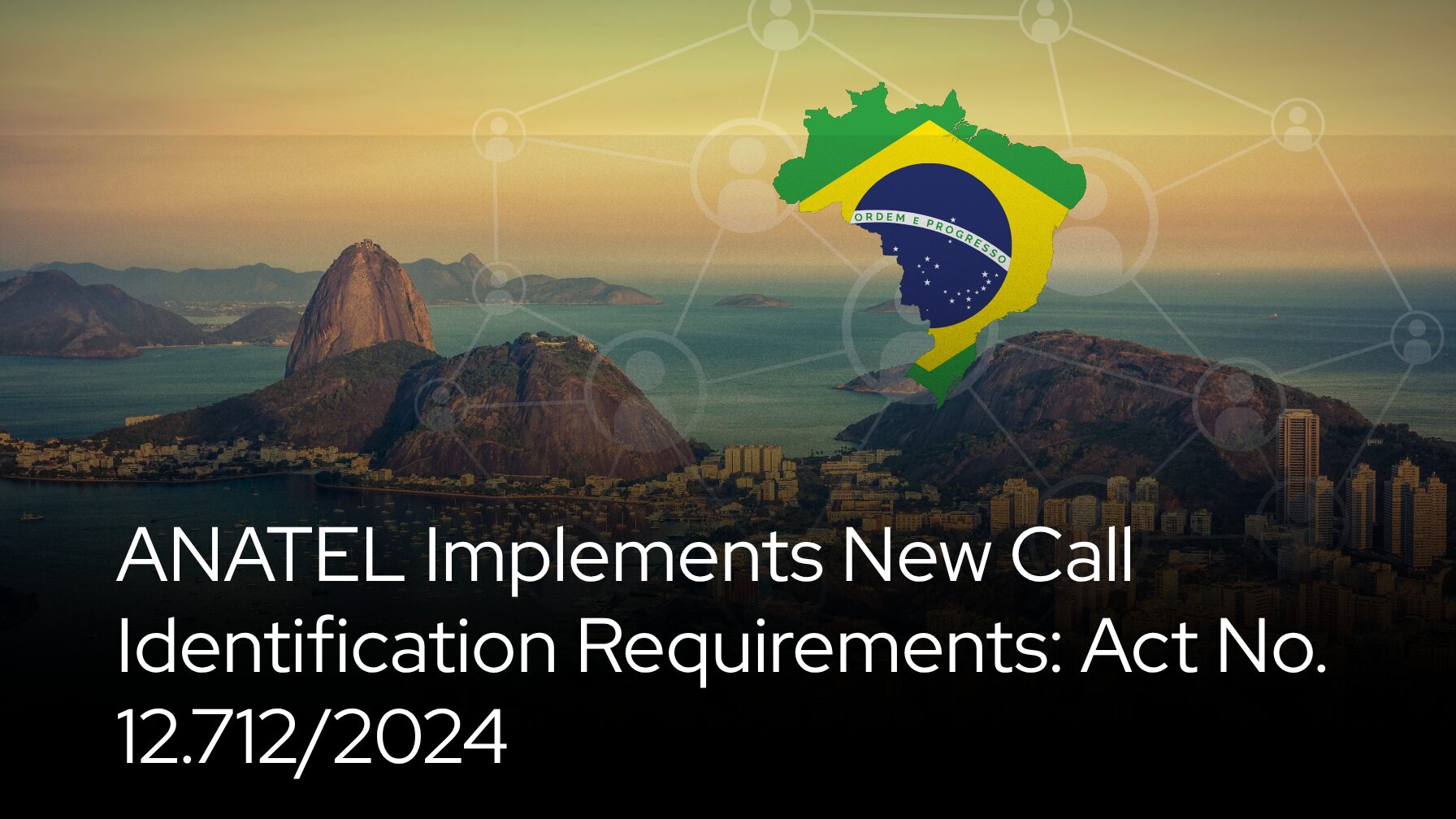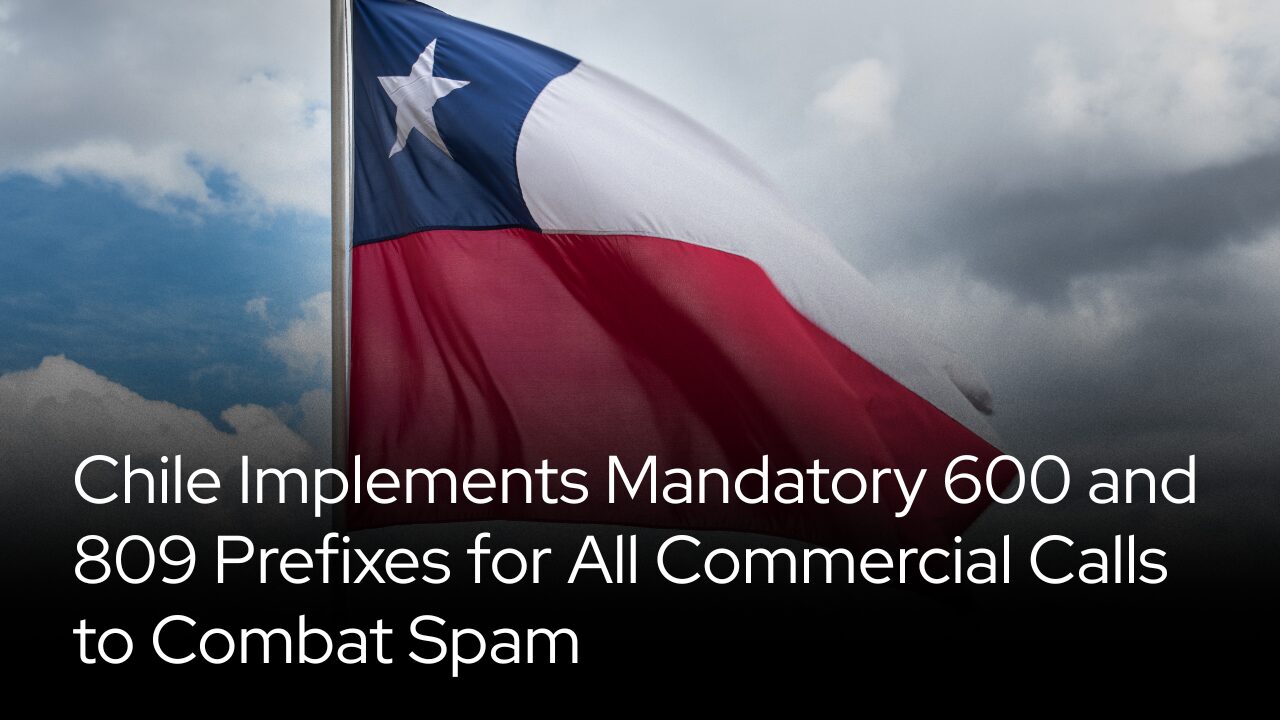Brazilian telecommunications regulator introduces mandatory call identification codes to combat abusive telemarketing practices
São Paulo, Brazil – December 2024
Brazil’s National Telecommunications Agency (ANATEL) has implemented Act No. 12.712/2024, establishing new requirements for telecommunications providers and subscribers to identify certain types of calls through mandatory identification codes. The regulation, which became effective in late 2024, represents ANATEL’s latest effort to address the growing problem of abusive telemarketing and unwanted robocalls affecting Brazilian consumers.
What the New Regulation Actually Does
Mandatory Call Identification System
ANATEL’s Act No. 12.712/2024 establishes that telecommunications providers and users (subscribers) are required to identify certain calls through codes, which are assigned according to the nature of the call. Such codes are assigned after the subscriber registers with nSAPN.
The regulation requires telecommunications companies to implement a system where specific types of calls must be identified with designated codes, allowing consumers to immediately recognize the nature of incoming calls before answering.
Integration with Existing Anti-Telemarketing Framework
This new requirement builds upon ANATEL’s existing anti-telemarketing measures. Since June 2022, all telemarketing companies that offer products or services must use the 0303 code, providing consumers with the possibility to identify the originator of the call and then decide whether to answer the call or not.
The expanded identification system under Act 12.712/2024 extends beyond just telemarketing calls to include other categories of commercial and service-related communications.
Why This Regulation Was Needed
Growing Consumer Complaints
Brazilian consumers have experienced a significant surge in unwanted calls over the past several years. ANATEL data shows that telemarketing complaints represent one of the largest categories of consumer grievances filed with the agency.
Previous Measures Showed Promise
ANATEL’s earlier interventions demonstrated the effectiveness of call identification systems. The agency deployed telephone code 0303 to be used by telemarketers and launched a series of “precautionary measures,” including addressing 26 telecommunications providers with a mandate to limit short calls—calls with a duration of less than three seconds—to 100 per day, per number.
Technological Capability and Consumer Protection
The regulation recognizes that modern telecommunications infrastructure can support sophisticated call identification systems, making it feasible to provide consumers with better information about incoming calls without significant technical barriers.
Impact on the Telecommunications Industry
Requirements for Telecommunications Providers
Technical Implementation:
- Providers must integrate with the nSAPN (National System for the Prevention of Abusive Calls) registration system
- Network infrastructure must support the transmission and display of call identification codes
- Real-time code assignment and validation systems must be implemented
Operational Changes:
- Customer service teams require training on the new identification requirements
- Billing and customer management systems need updates to handle code assignments
- Compliance monitoring and reporting systems must be established
Impact on Call Centers and Service Providers
Registration Requirements: Companies making outbound calls must register with nSAPN to receive appropriate identification codes based on their call types and business purposes.
Compliance Costs:
- Registration and maintenance fees for nSAPN participation
- Technical integration costs for call center systems
- Ongoing compliance monitoring and reporting expenses
Consumer Benefits
Enhanced Call Transparency: Consumers can immediately identify the type of call they’re receiving, enabling more informed decisions about whether to answer.
Reduced Unwanted Interruptions: The identification system allows consumers to filter calls more effectively, potentially reducing the impact of unwanted telemarketing.
Improved Consumer Protection: The system provides better tools for identifying potentially fraudulent or abusive calling practices.
Related ANATEL Regulatory Activity
Device Certification Updates
ANATEL has also been active in updating product certification requirements. ANATEL published Act No. 17087, approving technical requirements for electrical safety in the conformity assessment of telecommunications products, which became mandatory from December 27, 2023, with major changes including requirements for markings and instructions that must be present on the product and in its user manual.
Mobile Charger Standardization
Brazil’s National Telecommunications Agency issued the updated regulation Act 5155/2024: Technical requirements and test procedures for assessing the conformity of mobile phone chargers on April 17, 2024.
2G/3G Network Shutdown Planning
ANATEL Act No. 14430 is a new regulatory measure aimed at phasing out legacy 2G and 3G mobile networks, making way for more advanced technologies like 4G and 5G, with the Act coming into force on April 6, 2025.
Industry Response and Compliance
Telecommunications Provider Adaptation
Major Brazilian carriers have generally supported the call identification initiative, viewing it as a way to improve customer satisfaction and reduce complaints. However, smaller providers face technical and cost challenges in implementing the required systems.
Technology Vendor Opportunities
The regulation has created opportunities for technology vendors specializing in call management and identification systems, with several companies developing solutions specifically for nSAPN integration.
Consumer Advocacy Support
Consumer protection organizations have praised the regulation as a meaningful step toward reducing telemarketing abuse, though some advocate for even stronger measures including opt-in requirements for commercial calls.
Implementation Challenges
Technical Complexity
The system requires coordination between multiple telecommunications providers, call centers, and the central nSAPN platform, creating potential points of failure and complexity in implementation.
Enforcement and Compliance Monitoring
ANATEL faces the challenge of monitoring compliance across thousands of telecommunications providers and call centers while ensuring the system doesn’t create barriers for legitimate business communications.
Consumer Education
The effectiveness of the system depends partly on consumer awareness and understanding of the identification codes, requiring ongoing public education efforts.
Looking Forward
Expected Outcomes
Industry analysts expect the regulation to:
- Reduce consumer complaints about unwanted calls by 20-30% within the first year
- Increase consumer confidence in answering legitimate business calls
- Drive consolidation among call center operators unable to meet compliance requirements
Future Regulatory Developments
ANATEL has indicated that additional consumer protection measures may be introduced, potentially including:
- Expanded identification categories for different types of calls
- Integration with mobile device spam filtering systems
- Enhanced penalties for non-compliance with identification requirements
International Alignment
The regulation aligns Brazil with international trends toward enhanced call identification and consumer protection, similar to initiatives in the United States (STIR/SHAKEN) and European Union countries.
Conclusion
ANATEL’s Act No. 12.712/2024 represents a practical response to genuine consumer protection needs rather than a fundamental overhaul of telecommunications regulation. While the regulation doesn’t directly impact wholesale voice operators or international carriers in terms of technical requirements, it demonstrates ANATEL’s continued focus on consumer protection and call quality improvement.
The regulation’s success will depend on effective implementation by telecommunications providers and consumer adoption of the identification system. For the broader telecommunications industry, it signals ANATEL’s willingness to use available technology to address consumer concerns while maintaining market competition.
About the Regulation: Act No. 12.712/2024 is part of ANATEL’s broader consumer protection framework and works in conjunction with existing anti-telemarketing measures and the National Registry of Do Not Call Numbers.
For More Information: Telecommunications providers and businesses affected by the regulation should consult ANATEL’s official guidance documents and consider engaging with qualified telecommunications law counsel for compliance planning.
This article is based on publicly available regulatory information and industry analysis. Companies should consult directly with ANATEL and qualified legal counsel for specific compliance requirements.



